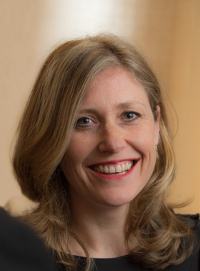 CREATe Industry Fellow, Emma Barraclough, shares her experiences on attending the CREATe Festival 2016 held at RSA House London on 24 June. This post first appeared on Managing IP.
CREATe Industry Fellow, Emma Barraclough, shares her experiences on attending the CREATe Festival 2016 held at RSA House London on 24 June. This post first appeared on Managing IP.
“People in this country have had enough of experts,” declared UK minister Michael Gove earlier this month.
The Leave campaigner was speaking during the EU referendum campaign, dismissing warnings from economists and international organisations about the likely impact of a vote for Brexit. “I’m not asking the public to trust me. I’m asking them to trust themselves,” he added.
IP professionals may have their own view about the sagacity of Gove’s preference for trust in instinct over expertise. But away from the headlines in Westminster and Brussels, IP professionals may be heartened by the growing use of evidence and expertise to shape policy in intellectual property.
In the area of copyright, much of that is thanks to work being done by researchers at CREATe, a multidisciplinary UK Research Councils project to investigate the role of copyright law in digital change and the creative economy. They are working on a range of themes, from emerging business models, the role of intermediaries and platforms, user creation and behaviour, and copyright regulation and enforcement.
Among a long list of activities, CREATe academics have helped establish copyrightevidence.org and copyrightuser.org to add to the evidence base for copyright policymaking and better inform users and creators about their rights. They have worked their way through legal documents in the UK’s IP courts to reveal who is filing – and winning – copyright cases (shortly to be summarised in CREATe’s Copyright Litigation Explorer). And they have examined the role of intermediaries in negotiating copyright permissions, both in the UK and Asian markets.
Their work is doing much to reshape policy debates on copyright.
At the CREATe Festival in London last week, which brought together IP academics, lawyers, users and creators, writer Becky Hogge recounted an interview she had once conducted with Andrew Gowers, the former FT editor who reviewed the UK’s IP rules. Gowers told her that for too long IP had been a priesthood on the one hand and a lobbyists’ playground on the other: dominated by “quite funny men of a certain age in legal chambers” and by “wellorganised and wellfocused, articulate and wellfinanced” lobbyists who want more IP protection.
Now that is changing, said Hogge. “CREATe’s work has really enriched the policy space.”
That was echoed by a keynote speaker at the CREATe Festival, Pirate Party MEP Julia Reda.
“Evidence cannot tell us what we ought to do, for that we will need values,” she said. “But evidence is all the more important if we want to work together across borders, to understand each other and to make responsible decisions in the common interest.”
Injecting more evidence into the debate on copyright helps ensure policy makers have a wide pool of information from which they can draw when formulating new laws and frameworks. In the rapidly changing area of digital technology, such information is vital.
Experts and evidence, many IP professionals will agree, can often be very useful.
